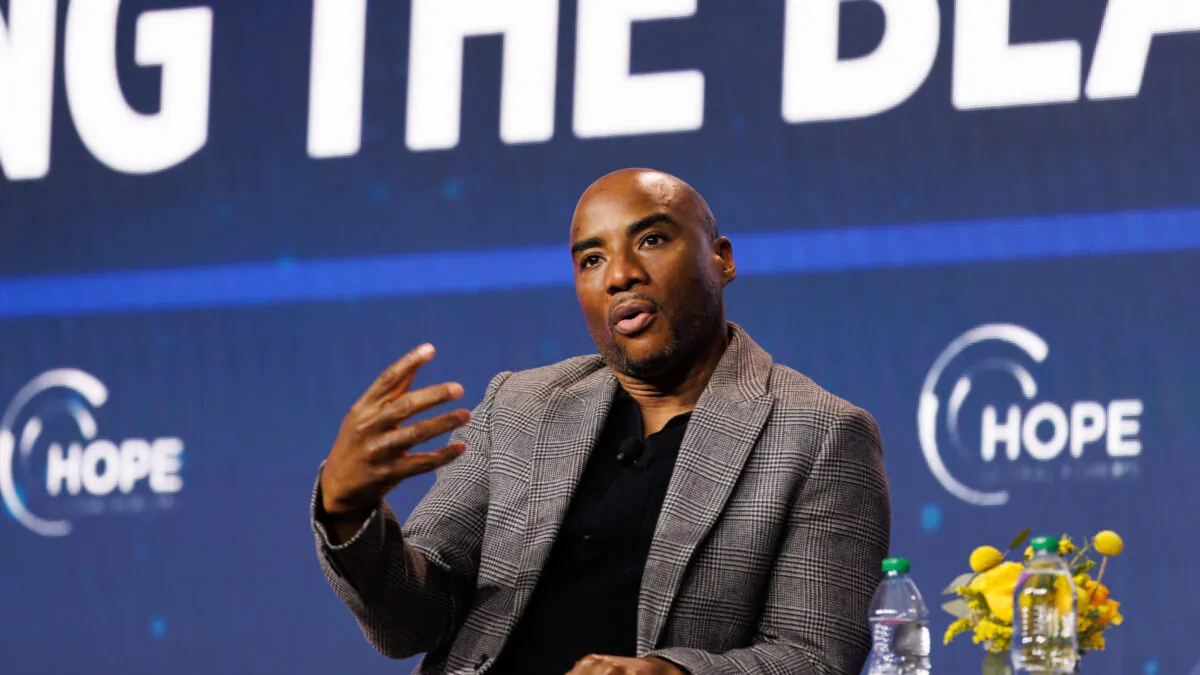A prominent black radio show personality reportedly feels “burned” over his past support of Vice President Kamala Harris.
Charlamagne tha God, the co-host of “The Breakfast Club” who was born Lenard Larry McKelvey, spoke to POLITICO about his break with Harris after her nearly three years in the White House.
“I’ve learned my lesson from doing that,” he told the news outlet. “Once they got in the White House, she … kind of disappeared.”
Charlamagne reportedly explained that he does not think the Biden administration has done enough to tackle mental health awareness, a topic that came up as he appeared on the campaign trail with Harris in 2019 when she was a presidential candidate, and promote criminal justice reforms that include addressing marijuana offenses.
“When I give people my word like: ‘Yo man, I think we should be supporting Kamala Harris for vice president … because she’s going to hold it down.’ When we say those things and people don’t see her holding it down, that causes issues,” he said.
Charlamagne added, “‘Damn, you told us to vote for [them].’ Do you know how many people say that to me all the time?”
CLICK HERE TO GET THE DAILYWIRE+ APP
A little more than two years ago, Harris erupted during an interview when Charlamagne asked her who was the real President of the United States.
After an aide to Harris tried to cut the interview short, claiming that there was an audio problem, Charlamagne pressed, “Is it [Sen.] Joe Manchin or Joe Biden, Madam Vice President?” To which Harris responded, “Come on, Charlamagne. Come on. It’s Joe Biden.”
Charlamagne quipped, “I can’t tell sometimes,” after which Harris shot back, “No, no, no, no, no, no, no. No. It’s Joe Biden. And don’t start talking like a Republican about asking whether or not he’s president. And it’s Joe Biden … and I’m vice president and my name is Kamala Harris.”
POLITICO noted that Charlamagne does not expect Harris or President Joe Biden to appear on “The Breakfast Club” during the current election cycle in which they are seeking a second term amid poor approval numbers and dropping support among black voters.

.png)
.png)

